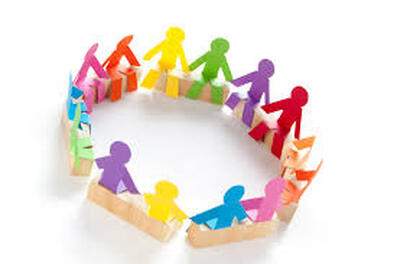Group Therapy is a clinical approach and therapeutic tool that has a diagnostic focus and is intended to treat inter-personal wounds or afflictions through the support of peers and the guidance of a professionally trained clinician. Group Therapy is not the same as Support Groups or 12-step Meetings in fact, its ideal for most participants to attend both forms of support in order to maximize the effectiveness of their efforts.
Because humans by nature are social beings, group therapy is a powerful therapeutic tool that is effective in developing a sense of belongingness, validation, security and acceptance.
Why Group Therapy:
Group therapy can engage therapeutic forces—like affiliation, support, and peer confrontation—and these properties enable clients to bond with a culture of recovery. Another advantage of group modalities is their effectiveness in treating problems that accompany addiction, such as depression, isolation, and shame.
Groups can support individual members in times of pain and trouble, and they can help people grow in ways that are healthy and creative. Formal therapy groups can be a compelling source of persuasion, stabilization, and support. In the hands of a skilled, well trained group leader, the potential healing powers inherent in a group can be harnessed and directed to foster healthy attachments, provide positive peer reinforcement, act as a forum for self expression, and teach new social skills. In short, group therapy can provide a wide range of therapeutic services, comparable in efficacy to those delivered in individual therapy.
Treating Addiction:
Group therapy and addiction treatment are natural allies. One reason is that people who abuse substances are often more likely to stay sober and committed to abstinence when treatment is provided in groups, apparently because of rewarding and therapeutic benefits like affiliation, confrontation, support, gratification, and identification. This capacity of group therapy to bond patients to treatment is an important asset because the greater the amount, quality, and duration of treatment, the better the client’s prognosis
Group therapy has advantages over other one-on-one treatment modalities. These include positive peer support; a reduction in clients’ sense of isolation; real life examples of people in recovery; help from peers in coping with substance abuse and other life problems; information and feedback from peers; a substitute family that may be healthier than a client’s family of origin; social skills training and practice; peer confrontation; a way to help many clients at one time; structure and discipline often absent in the lives of people abusing substances; and finally, the hope, support, and encouragement necessary to break free from substance abuse.
Because humans by nature are social beings, group therapy is a powerful therapeutic tool that is effective in developing a sense of belongingness, validation, security and acceptance.
Why Group Therapy:
Group therapy can engage therapeutic forces—like affiliation, support, and peer confrontation—and these properties enable clients to bond with a culture of recovery. Another advantage of group modalities is their effectiveness in treating problems that accompany addiction, such as depression, isolation, and shame.
Groups can support individual members in times of pain and trouble, and they can help people grow in ways that are healthy and creative. Formal therapy groups can be a compelling source of persuasion, stabilization, and support. In the hands of a skilled, well trained group leader, the potential healing powers inherent in a group can be harnessed and directed to foster healthy attachments, provide positive peer reinforcement, act as a forum for self expression, and teach new social skills. In short, group therapy can provide a wide range of therapeutic services, comparable in efficacy to those delivered in individual therapy.
Treating Addiction:
Group therapy and addiction treatment are natural allies. One reason is that people who abuse substances are often more likely to stay sober and committed to abstinence when treatment is provided in groups, apparently because of rewarding and therapeutic benefits like affiliation, confrontation, support, gratification, and identification. This capacity of group therapy to bond patients to treatment is an important asset because the greater the amount, quality, and duration of treatment, the better the client’s prognosis
Group therapy has advantages over other one-on-one treatment modalities. These include positive peer support; a reduction in clients’ sense of isolation; real life examples of people in recovery; help from peers in coping with substance abuse and other life problems; information and feedback from peers; a substitute family that may be healthier than a client’s family of origin; social skills training and practice; peer confrontation; a way to help many clients at one time; structure and discipline often absent in the lives of people abusing substances; and finally, the hope, support, and encouragement necessary to break free from substance abuse.


